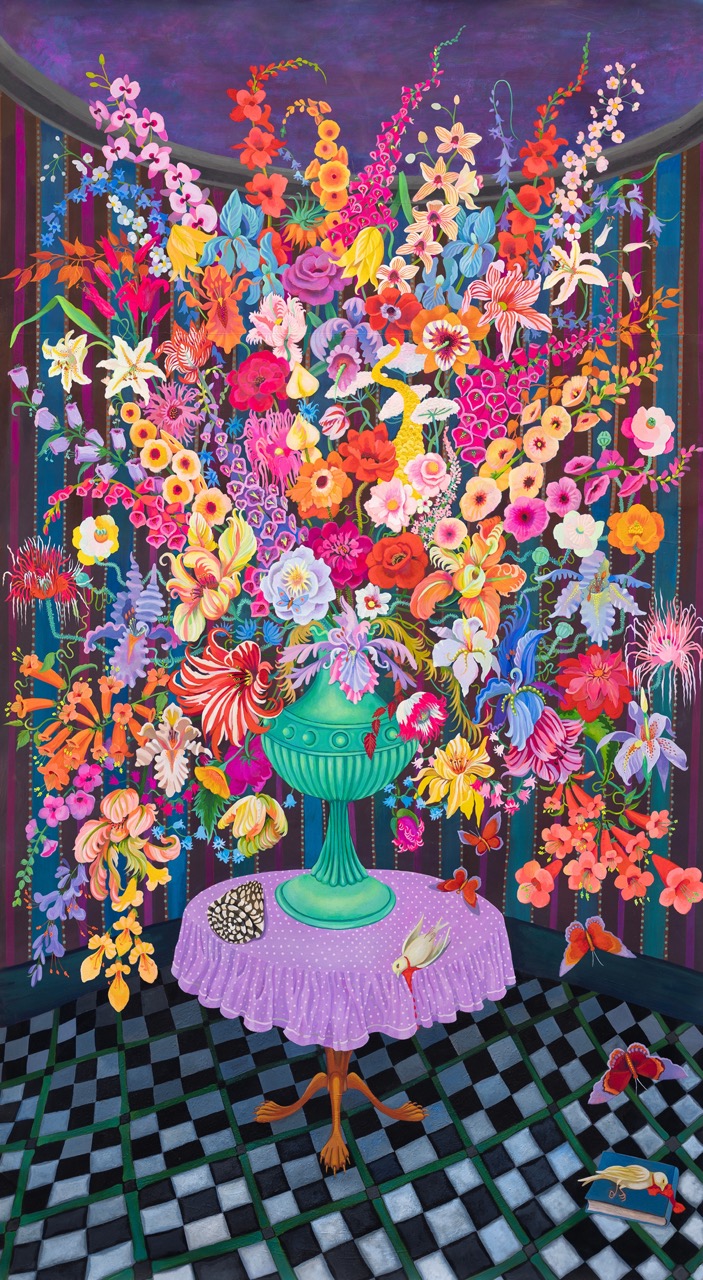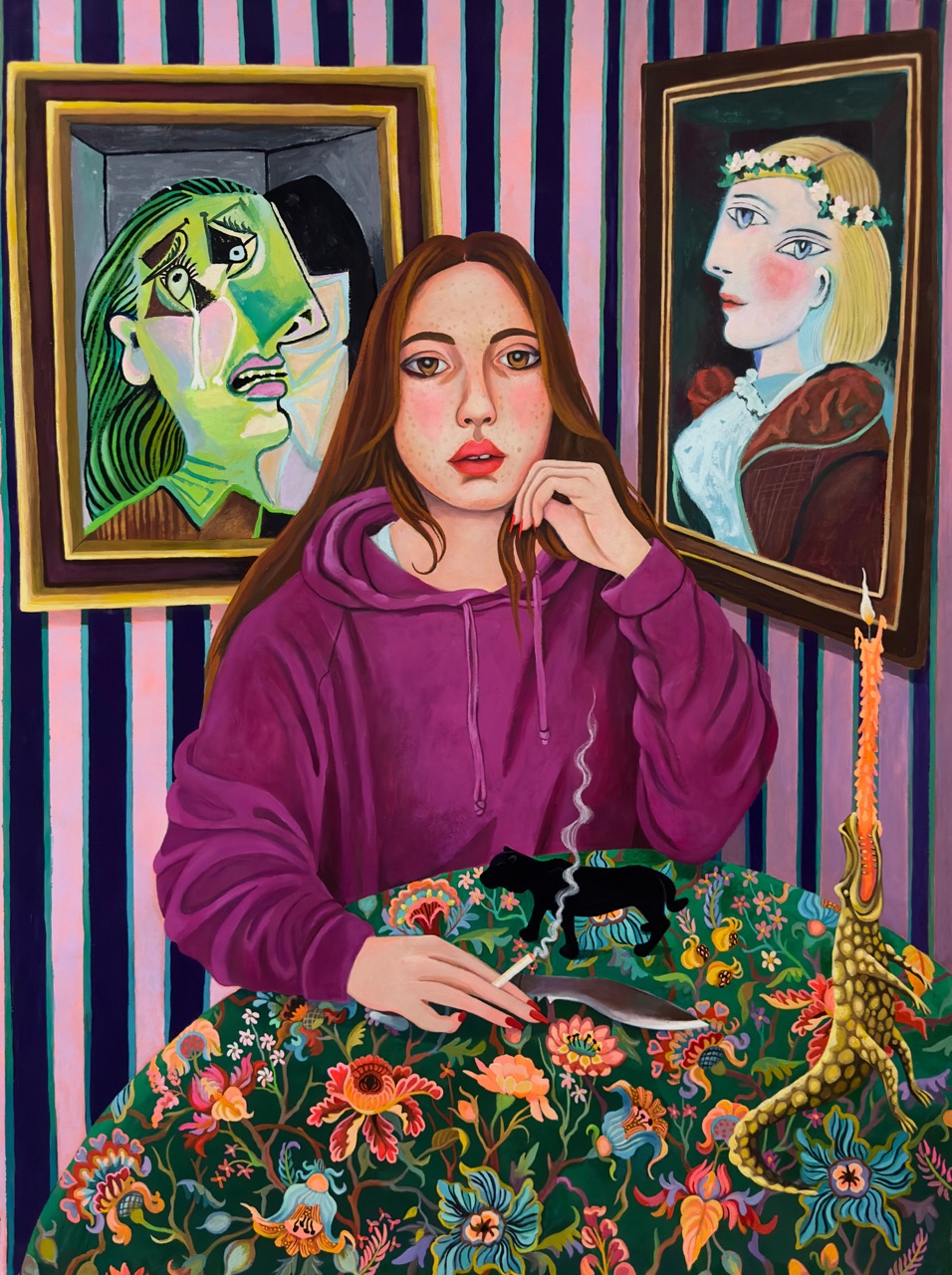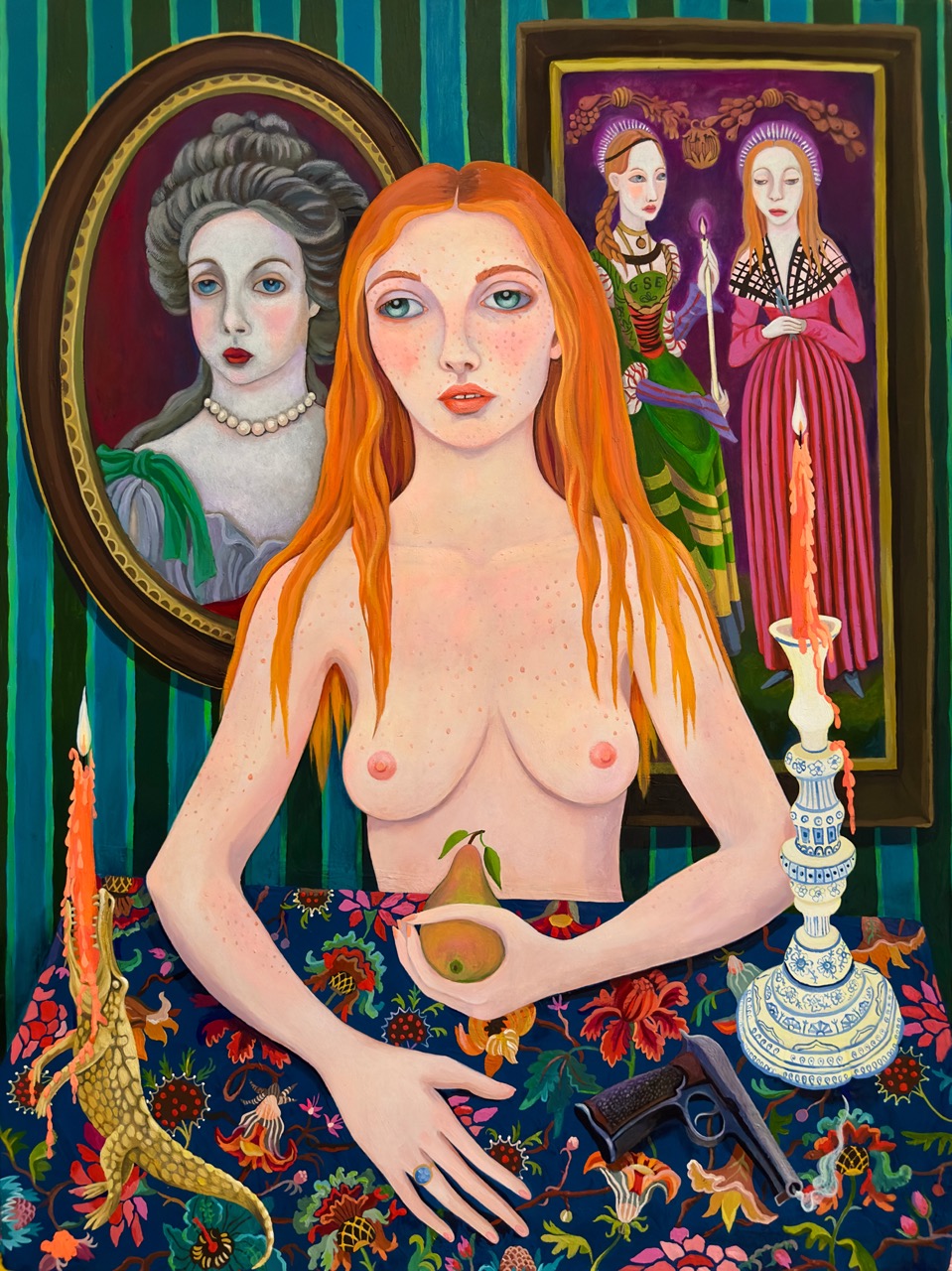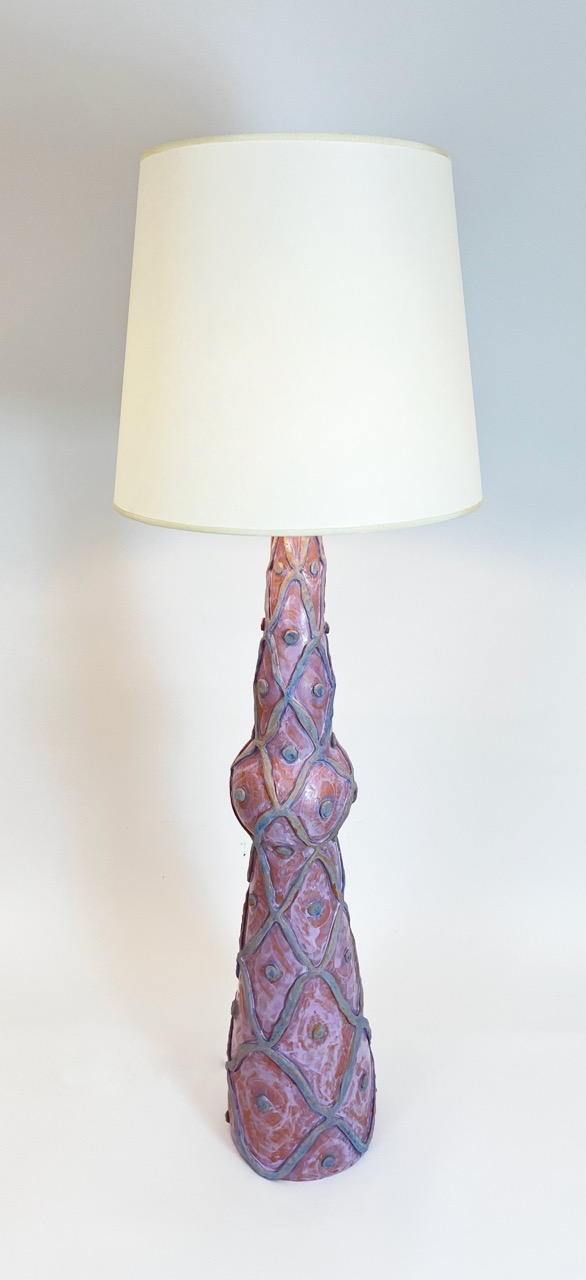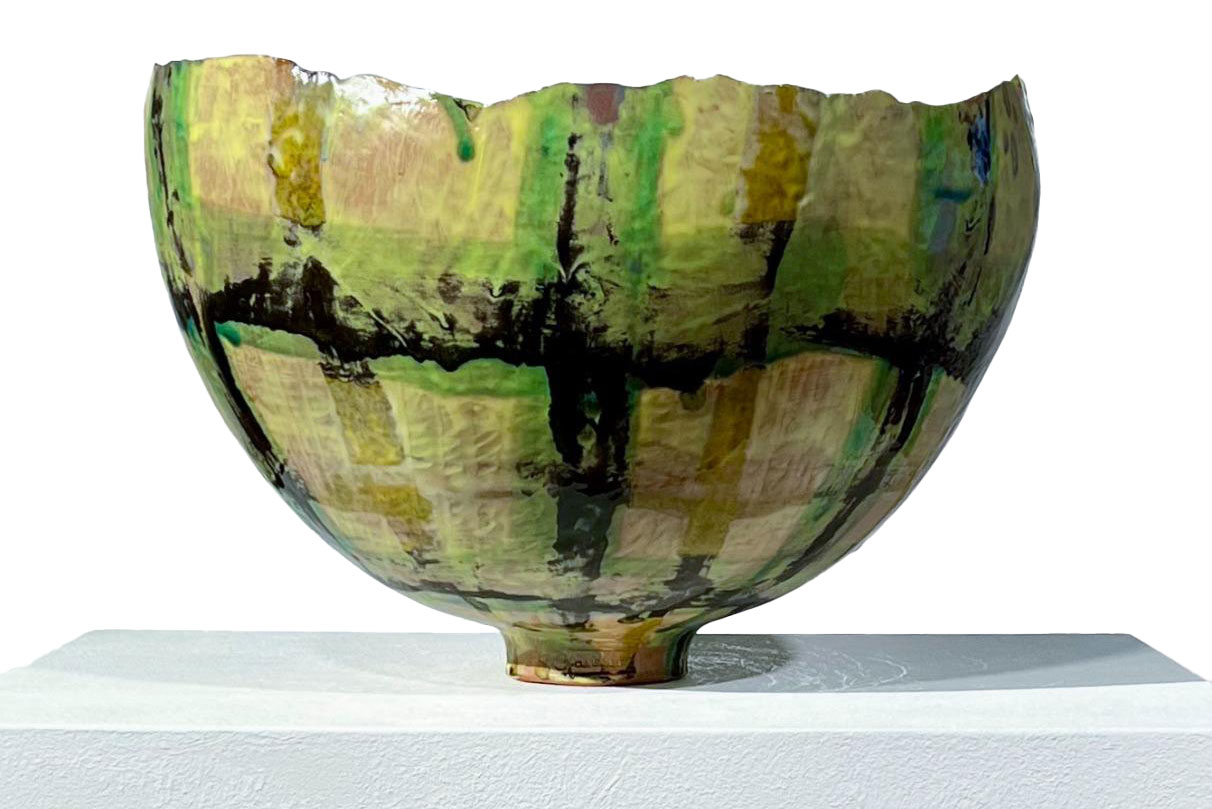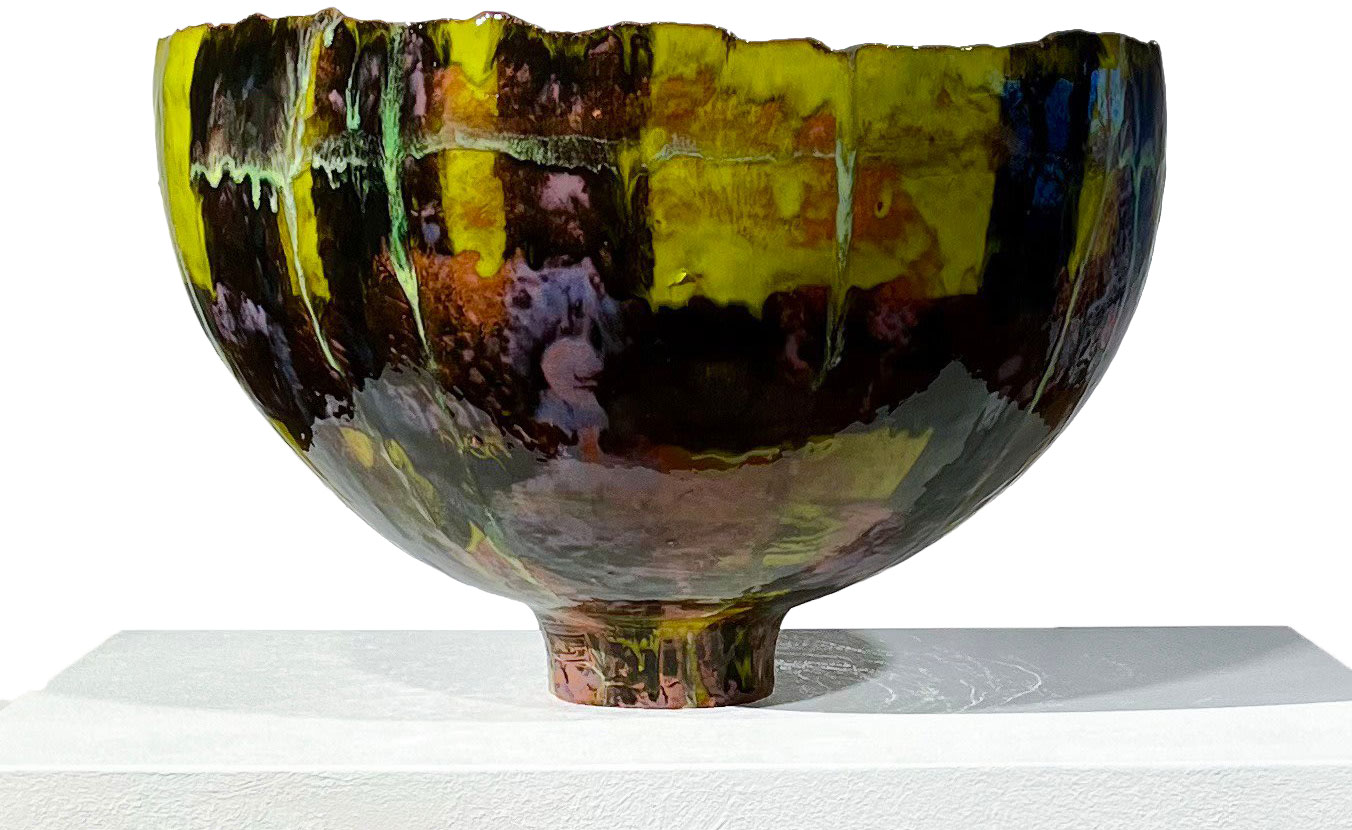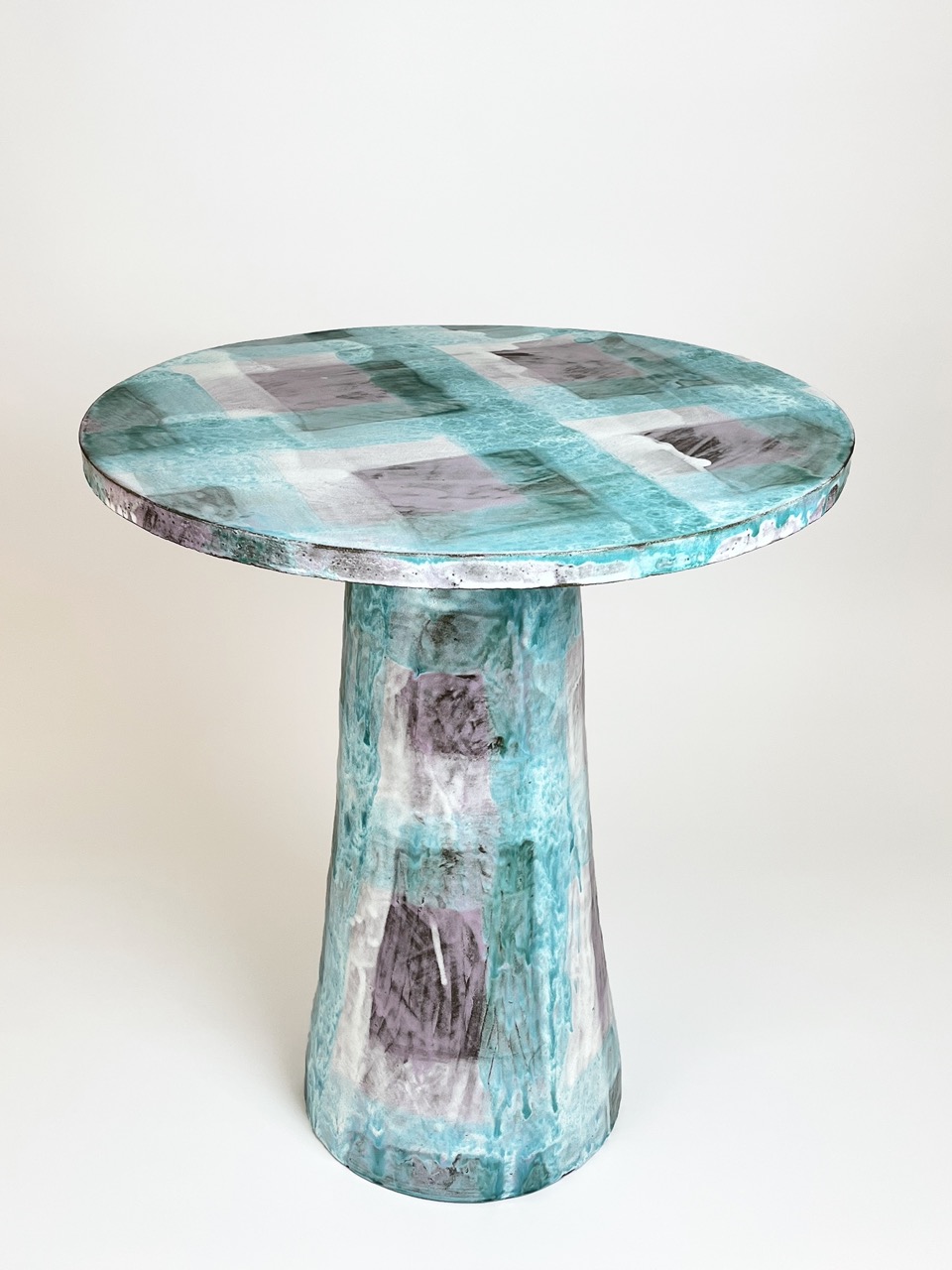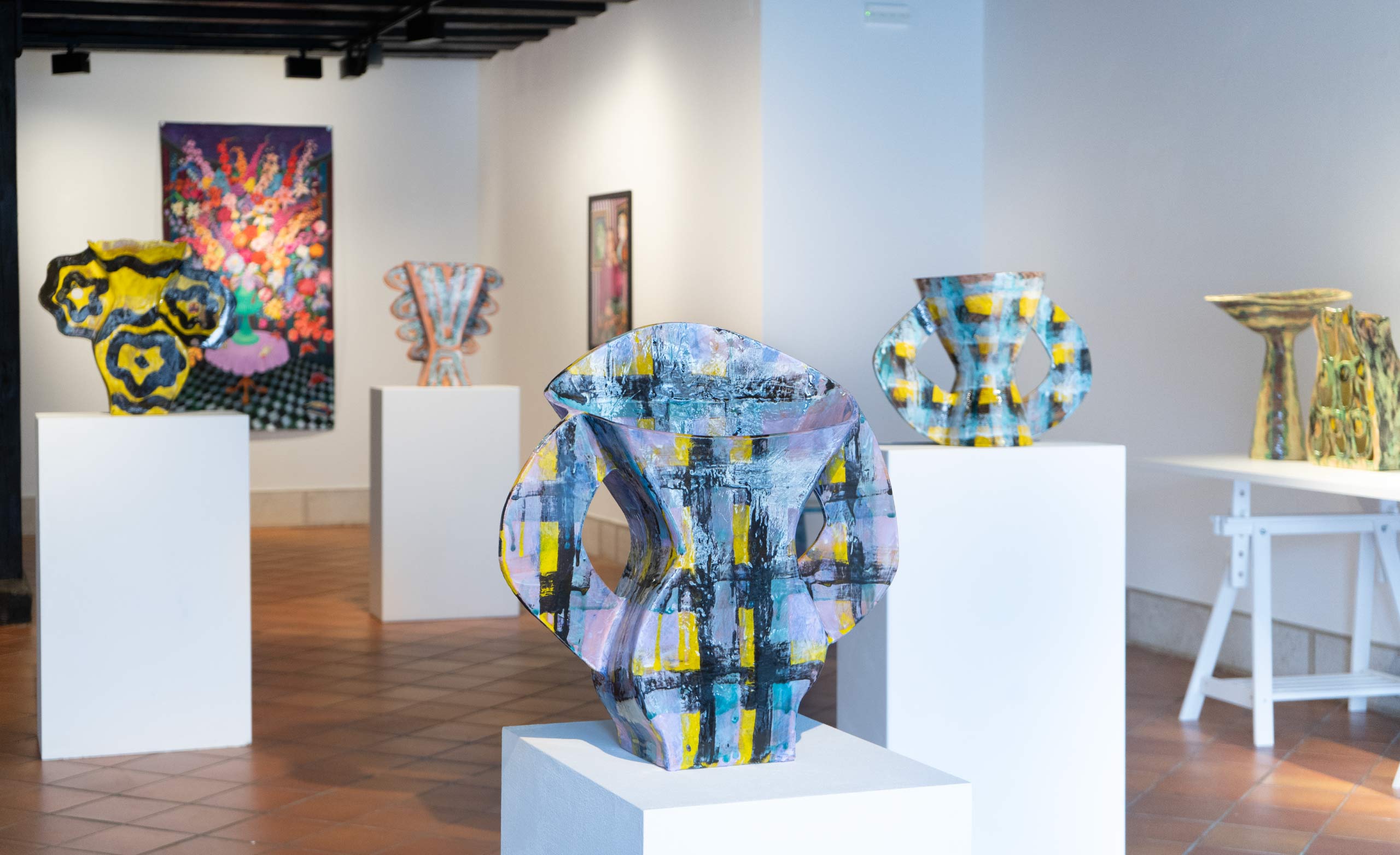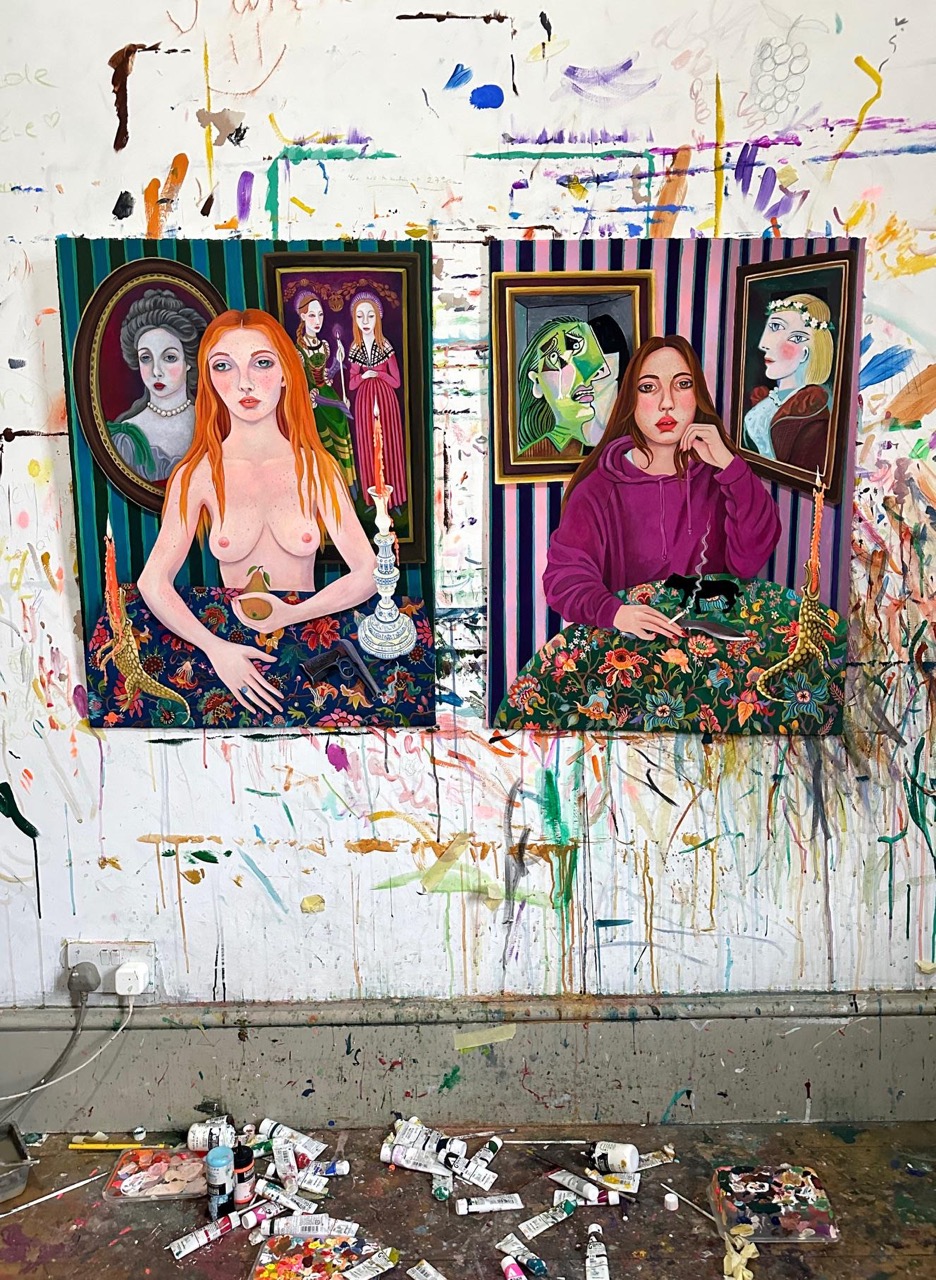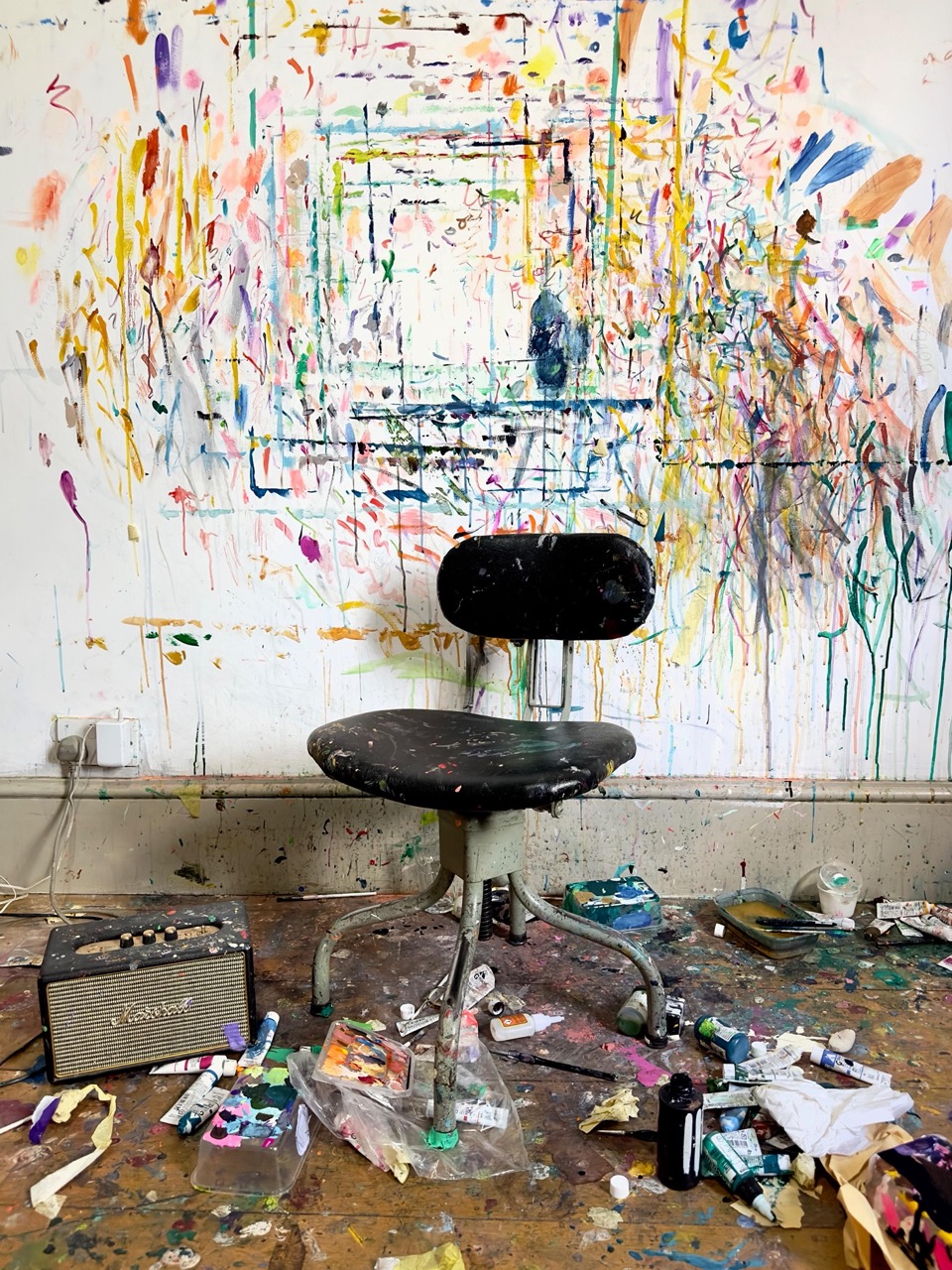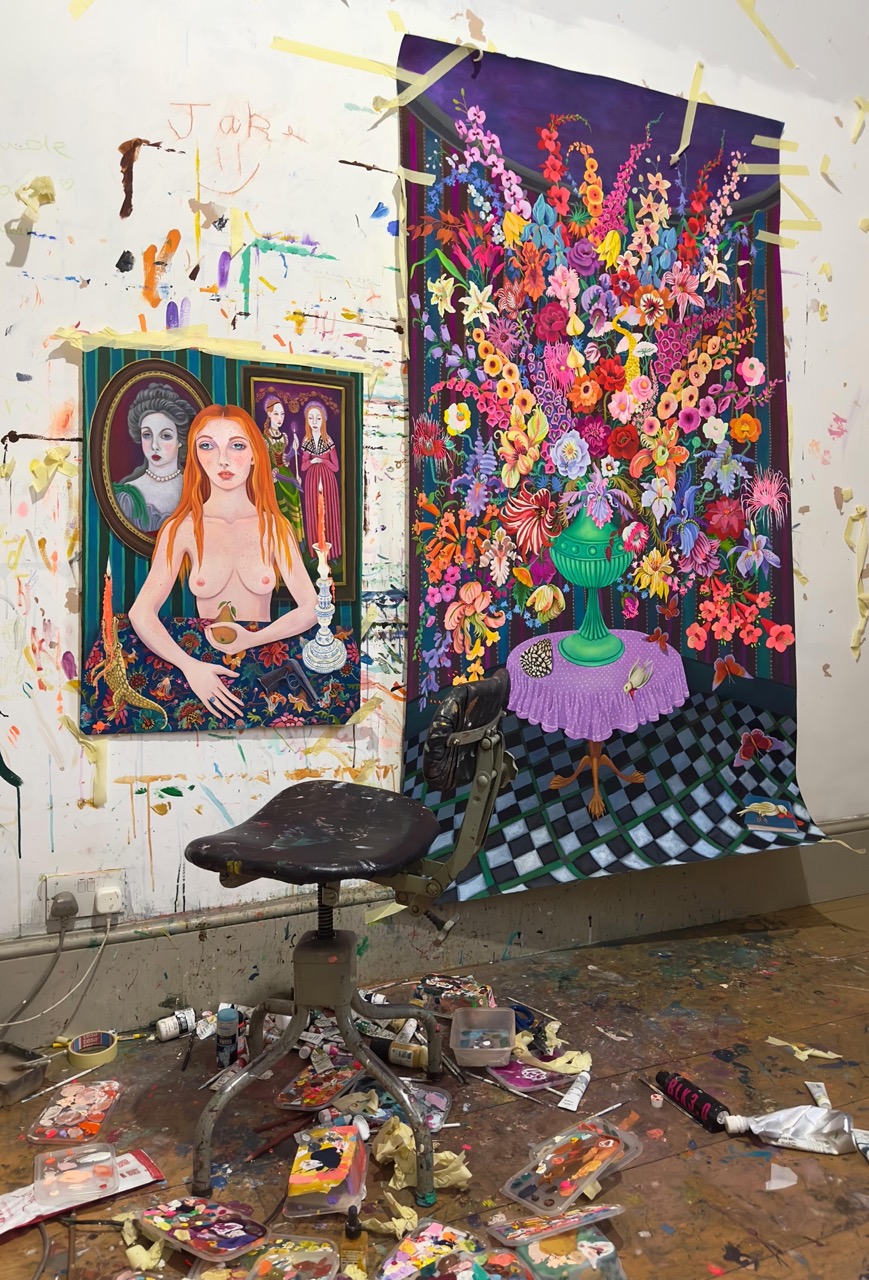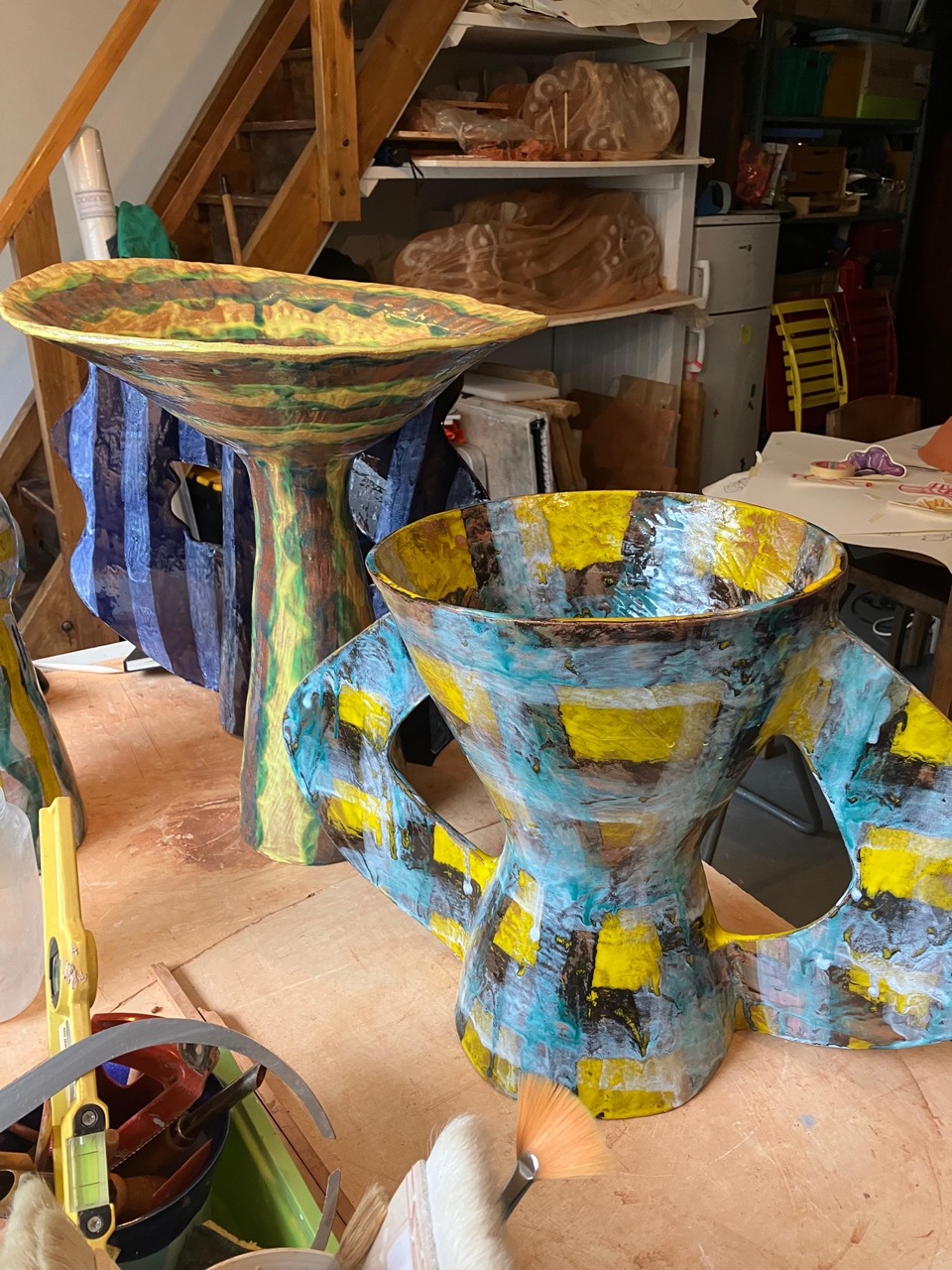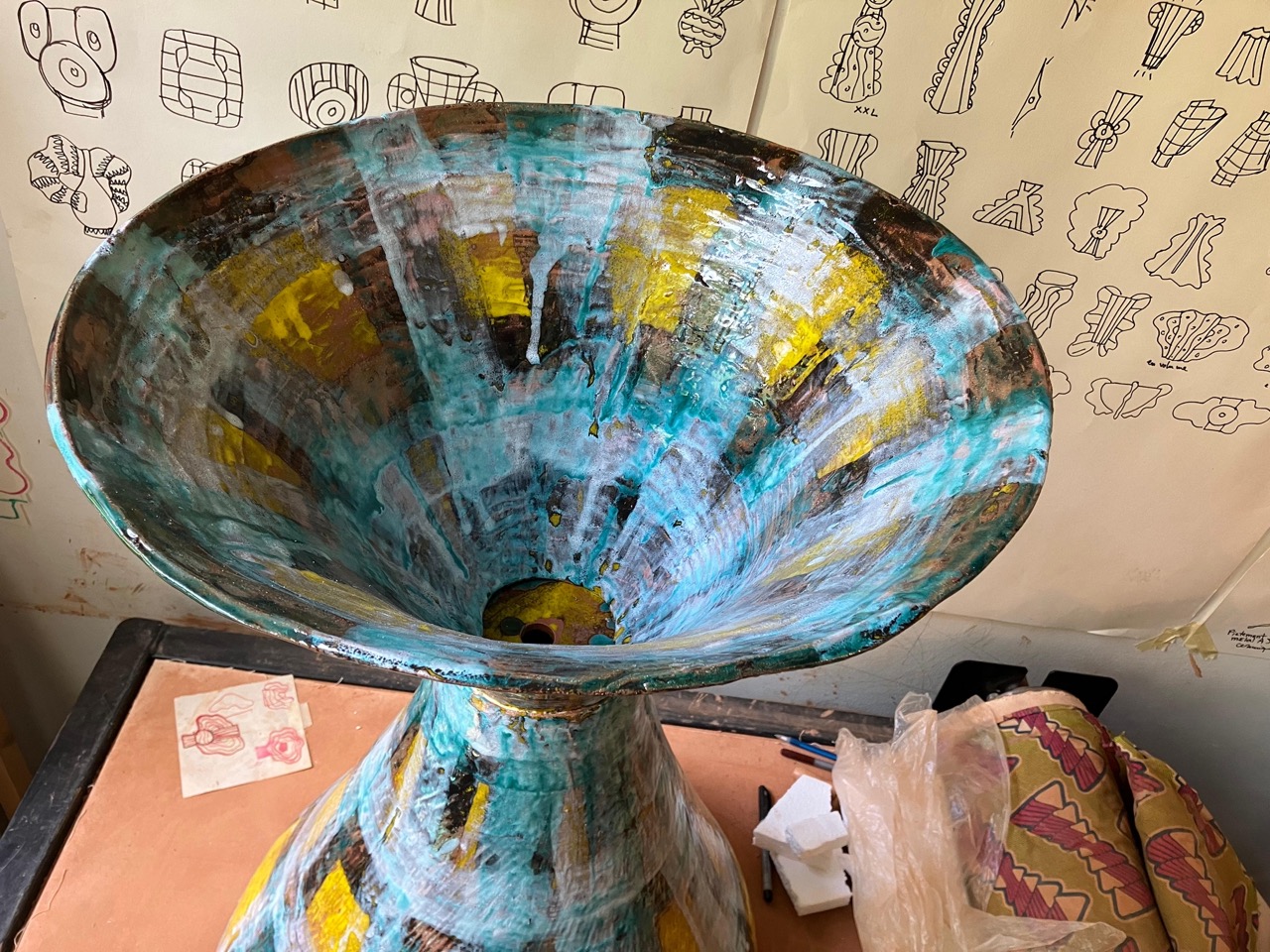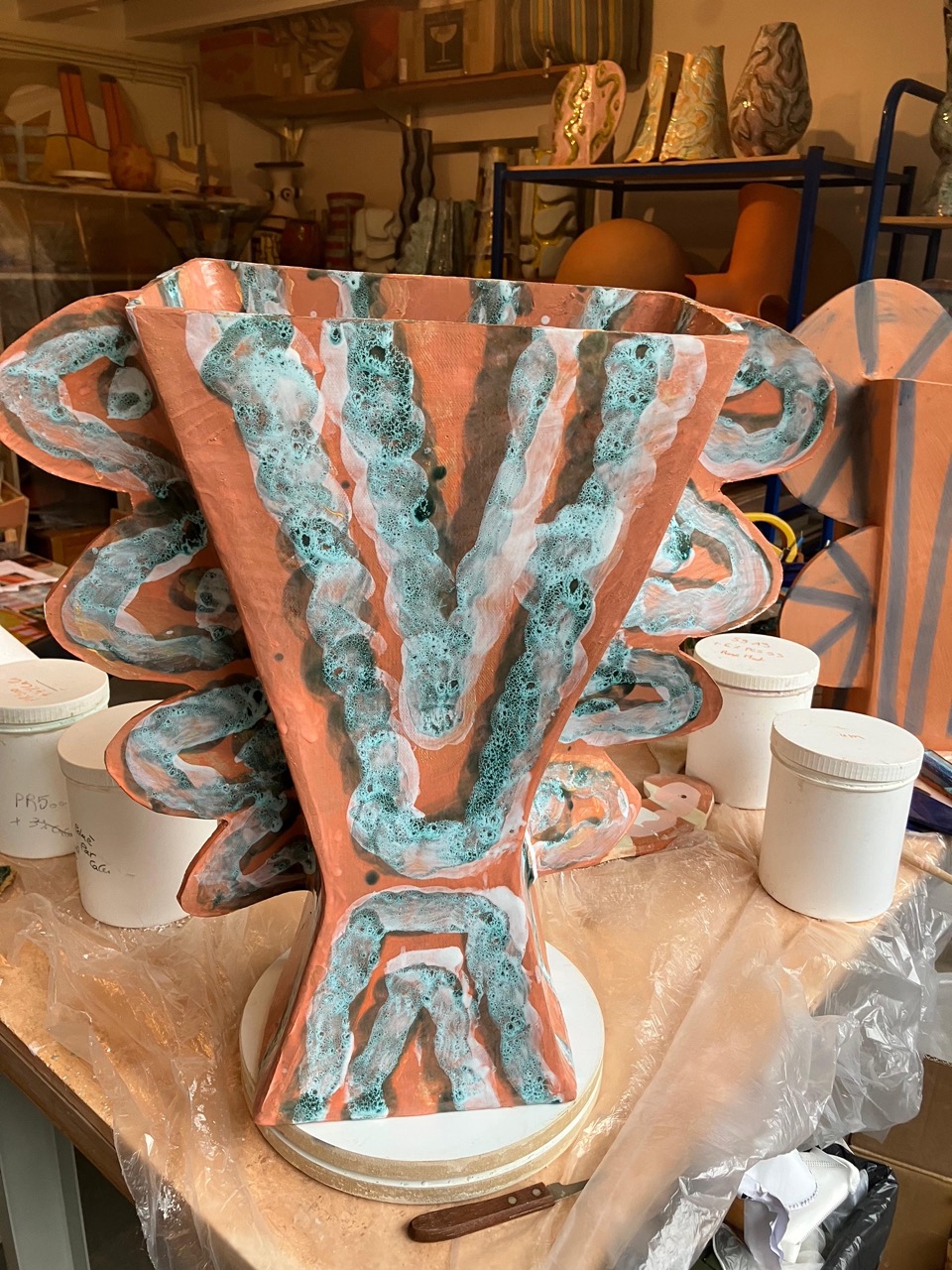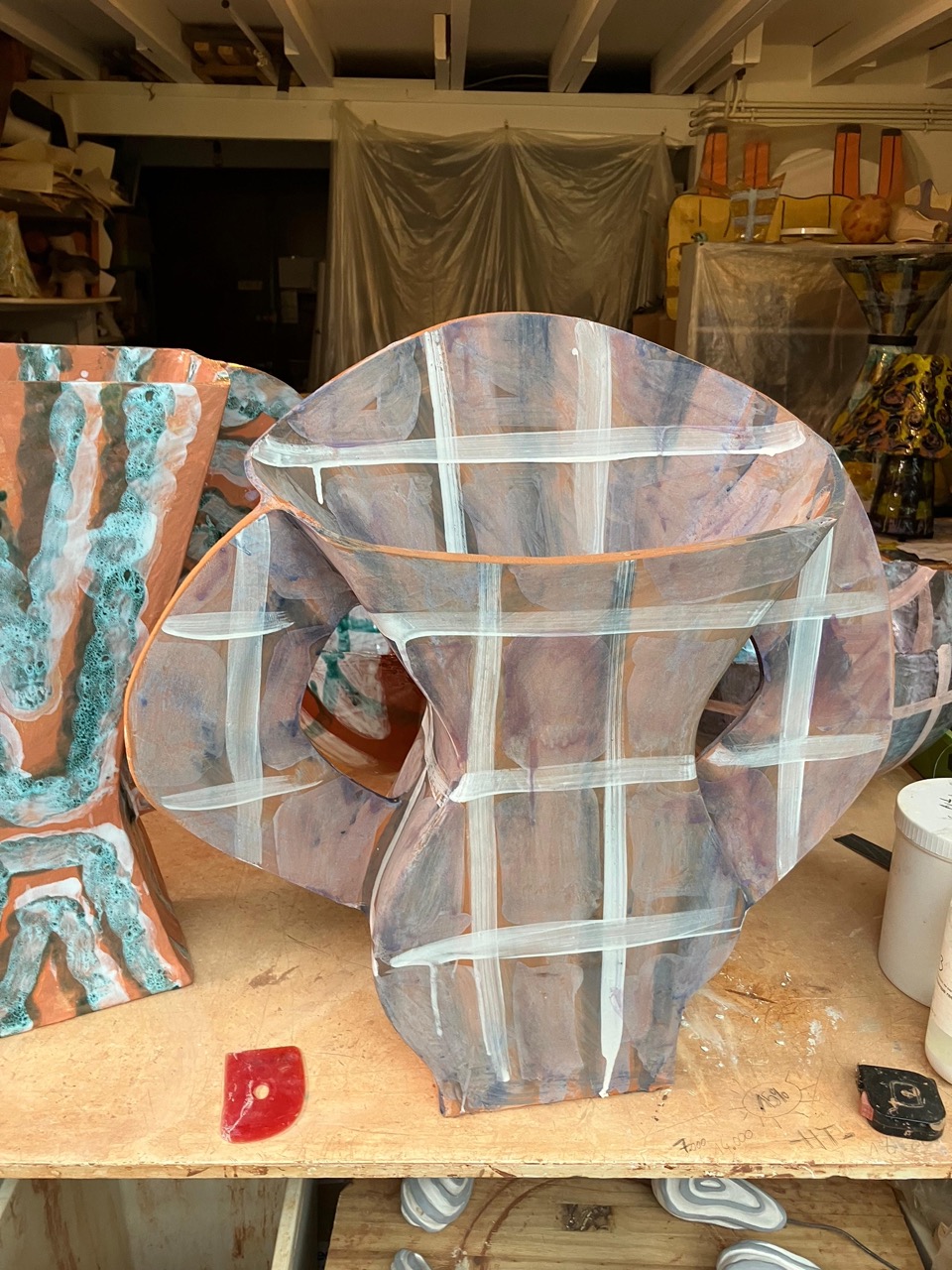Hiraeth
-
![]() Helen Downie
Helen Downie
Solfeggio Revisited,2024
Gouache, chalk pastel on Fabriano paper
190 x 106 cm -
![]() Helen Downie
Helen Downie
The End of Salad Days,2024
Gouache, chalk pastel on Fabriano paper
85 x 65 x 2 cm -
![]() Helen Downie
Helen Downie
Romantic Comedy,2024
Gouache, chalk pastel on Fabriano paper
85 x 65 x 2 cm -
![]() Alice Gavalet
Alice Gavalet
Untitled,2024
Glazed ceramic
53 x 45.5 x 45.5 cm -
![]() Alice Gavalet
Alice Gavalet
Untitled,2024
Glazed ceramic
53 x 57 x 15.5 cm -
![]() Alice Gavalet
Alice Gavalet
Untitled,2024
Glazed ceramic
47 x 55 x 13 cm -
![]() Alice Gavalet
Alice Gavalet
Untitled,2024
Glazed ceramic
40 x 57 x 31.5 cm -
![]() Alice Gavalet
Alice Gavalet
Untitled,2024
Glazed ceramic
50 x 35 x 15 cm -
![]() Alice Gavalet
Alice Gavalet
Untitled,2024
Glazed ceramic
58 x 46 x 46 cm -
![]() Alice Gavalet
Alice Gavalet
Untitled,2024
Glazed ceramic
30 x 55 x 17 cm -
![]() Alice Gavalet
Alice Gavalet
Untitled,2024
Glazed ceramic
58 x 45 x 20 cm -
![]() Alice Gavalet
Alice Gavalet
Untitled,2024
Glazed ceramic
46 x 56 x 20 cm -
![]() Alice Gavalet
Alice Gavalet
Untitled,2024
Glazed ceramic
60 x 60 x 18 cm -
![]() Alice Gavalet
Alice Gavalet
Untitled,2024
Glazed ceramic
59 x 29 x 29 cm -
![]() Alice Gavalet
Alice Gavalet
Untitled,2024
Glazed ceramic
56 x 56 x 17 cm -
![]() Alice Gavalet
Alice Gavalet
Untitled,2024
Glazed ceramic
55 x 55 x 20 cm -
![]() Alice Gavalet
Alice Gavalet
Floor Lamp,2023
Glazed ceramic
151 x 50 x 50 cm -
![]() Alice Gavalet
Alice Gavalet
Untitled,2024
Glazed ceramic
28 x 44 x 44 cm -
![]() Alice Gavalet
Alice Gavalet
Untitled,2024
Glazed ceramic
28 x 44 x 44 cm -
![]() Alice Gavalet
Alice Gavalet
Ceiling lamp,2024
Glazed ceramic
115 x 50 x 50 cm -
![]() Alice Gavalet
Alice Gavalet
Untitled,2024
Glazed ceramic
51 x 50 x 50 cm
Hiraeth—a Welsh word that speaks to a deep longing for a place, time, or person that may never have been, or may never return—forms the emotional backbone of this exhibition. We are invited to explore the complexity of this ache—an intangible, bittersweet yearning for something elusive and forever out of reach.
In Alice Gavalet’s ceramics, as well as in her guéridons (tables) and lamps, the line between utility and art dissolves. Her vibrant, playful vessels and bowls—shaped from large slabs of clay and adorned with intricate, geometric patterns—transcend their function as mere objects. These pieces, often anthropomorphic and distorting traditional forms, invite us into a space where the familiar collides with the unknown. The colorful patterns, which evoke tartan fabric and architectural grids, suggest a world both structured and free flowing. The fluidity of her ceramic pieces—deformed, twisted, and reimagined—becomes a metaphor for how we carry the weight of memory, desire, and longing. Each form is a fragment of something lost or forgotten, a quiet rebellion against the idea of completion or perfection.
A particularly striking example in the exhibition is one of Gavalet’s lamps, standing at 151 cm tall. Its lilac and purple hues command attention, but the form of the lamp’s stand is equally compelling. Gavalet’s guéridons, too, dissolve the boundary between art and everyday life, each one an invitation to explore the intricate and personal layers of memory, emotion, and time.
Helen Downie’s portraits and still lifes, created under the pseudonym Unskilled Worker, are rich with layers of emotional depth, vulnerability, and nostalgia. Her works often blend the raw with the refined, exploring themes of beauty, power, and the tension between presence and absence.
In Romantic Comedy (2024), a naked woman sits at a table holding a pear, her nakedness both vulnerable and defiant. She has long red hair, adding to the intensity of her presence. She is framed by portraits—one of a stately British lady dressed in period attire, and another depicting two young women in historic dresses, evoking a time long past. Surrounding the figure are symbolic objects, including a crocodile-shaped candle holder. This unusual object may symbolize the support for a personal process, possibly a way of grappling with old emotional topics. Resting on the table, there is also a revolver—its presence a subtle yet powerful reminder of the tension between beauty and violence, passivity, and agency.
In The End of Salad Days (2024), a young woman in a lilac hoodie sits at a table, gazing inward. Behind her, two Picasso paintings add an additional layer of narrative, grounding the scene in art history while simultaneously distancing the figure from the past. The young woman’s presence, both contemporary and enigmatic, contrasts sharply with the distant, abstracted faces in the Picasso works, highlighting the tension between personal longing and historical distance. Resting on the table, right beneath her right hand, lies a knife—its presence both subtle and charged, a symbol of inner conflict or potential violence. Also on the table is a crocodile-shaped candleholder, reminiscent of its appearance in Romantic Comedy, perhaps representing a symbolic support for the woman’s process of confronting and processing old emotional wounds. The simple, flower-patterned tablecloth ties the scene to the everyday, while the quiet isolation of the figure suggests a deeper search for identity and meaning. Adding to the symbolism, a black panther’s presence looms within the space, silently watching over the scene—a symbol of power, instinct, and the untamed nature of the self.
Through her exploration of love, longing, and the juxtaposition of beauty and rage, Downie creates spaces where the past and present collide, and where women reclaim their narratives, resisting the expectations imposed on them. Her works reflect a quiet but potent force—one that challenges the viewer to embrace the unresolved.
In Solfeggio Revisited (2024), Downie channels a similar sense of yearning through the visual metaphor of a floral still life. The exuberant flowers, reaching toward the ceiling from a small green vase, evoke an emotional tension between restraint and overflowing vitality. Their towering height invites contemplation of unfulfilled longing, while their natural beauty offers a quiet kind of solace. Surrounding the flowers are delicate butterflies fluttering in the space, which, along with two dead white doves, are key features of the painting. One dove lies on a book on the floor, its fragile body marred by blood running down its neck—a haunting and powerful symbol of mortality and fragility, evoking the vanitas tradition. The second dove rests on the table, its lifeless form drawing a stark contrast to the vibrancy of the surrounding flowers and butterflies, amplifying the tension between life and death, beauty, and decay. Additionally, a black-and-white shell, curled in a snail-like form, rests gently within the composition, adding an organic complexity to the scene. Its spiral shape echoes themes of cyclical time and the passage of life, further reinforcing the vanitas motif. The feet of the table, sculpted to resemble lion claws, introduce an element of strength and power, subtly contrasting with the delicate symbolism of the scene.
Alice Gavalet lives and works outside Paris in Nogent sur Marne. In 2003 she graduated from the École Nationale Supérieure des Arts Décoratifs in Paris, where she studied industrial design, after learning ceramic design at the École Nationale Supérieure des Arts Appliqués et des Métiers d’Art Olivier De Serres in Paris. Her work straddling design, sculpture and painting has been exhibited in solo and group shows internationally, with solo exhibitions at Galerie Italienne, Paris (2022) and Galerie Michele Hayem, Paris (2020), among others; and in group shows at La Galerie XXI, New York (2023), Patricia Low Contemporary, Gstaad (2023), Fondation Villa Datris, Isle sur la Sorgue (2022) and Cheongju International Craft Biennale, Korea (2021). Her works are part of the collection of the Mobilier National of France.
Helen Downie is a London based self-taught artist. Her paintings are collected nationally and internationally and have been exhibited within solo presentations at Daniel Cooney Fine Art, New York (2024), at Luca Tommasi Arte in Milan (2022) and within numerous group exhibitions at Institut London (2021), Hauser & Wirth, London (2021), at Museo ABC, Madrid (2019), at Aki Atelier Gallery, Seoul (2018), in “Mother”, The Great Women Artists, London (2017), at PMQ, Hongkong (2017), at Shape Arts Gallery, London (2016) and Minsheng Art Museum, Shanghai (2015). In 2017, Gucci collaborated with the artist by launching a 40-piece collection featuring her artwork. To coincide with the launch her art was displayed on art walls and fly posters in London, New York, Paris, Milan, and Shanghai.
